SUMMARY
This is AI generated summarization, which may have errors. For context, always refer to the full article.
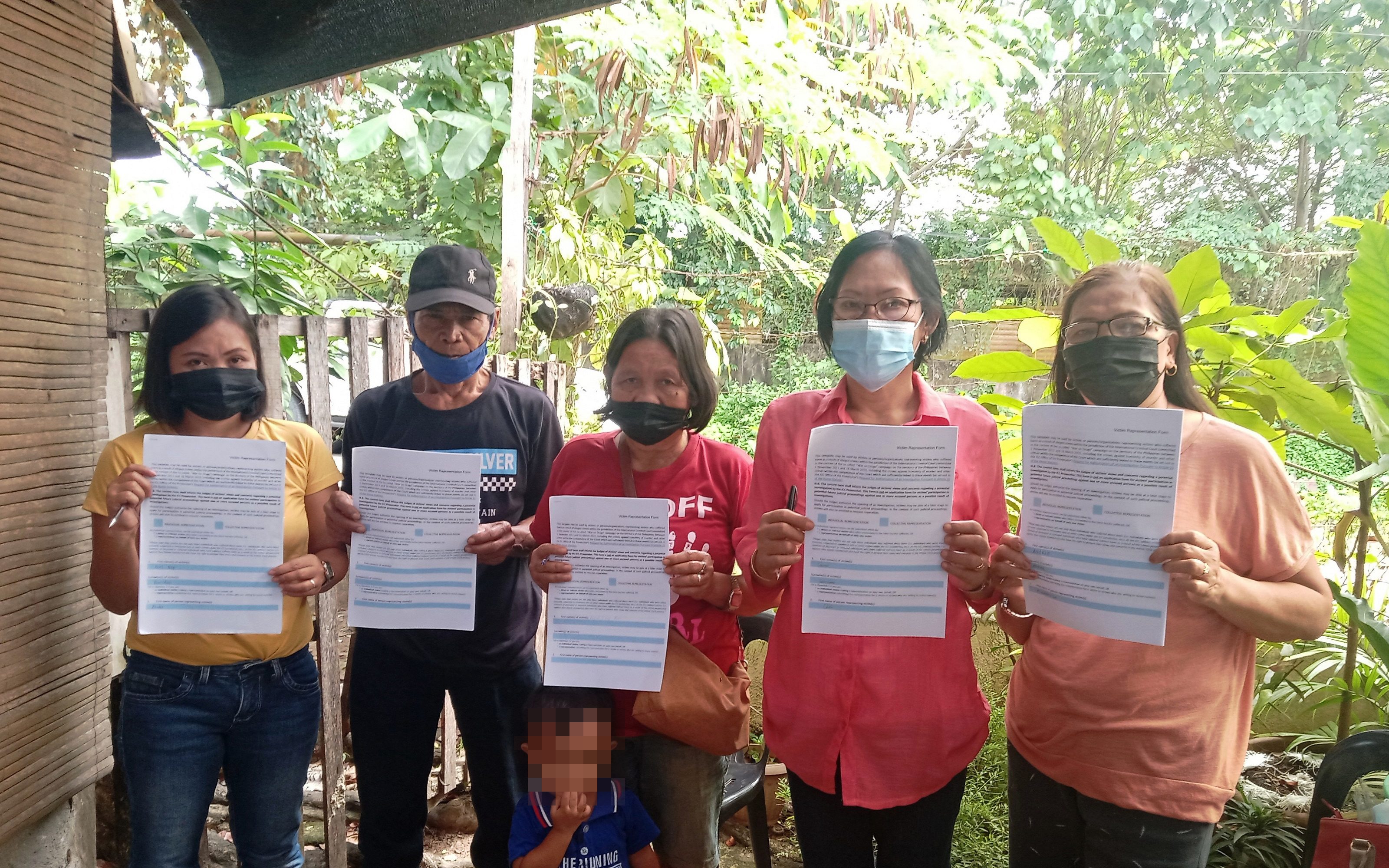
The families of three young men who were killed by police in Zamboanga del Norte during the first month of President Rodrigo Duterte’s bloody war on drugs have pinned their hopes for justice on the International Criminal Court (ICC).
The families, represented by a retired judge from Ipil town, Zamboanga Sibugay, beat the August 13 deadline for the submission of representations to the ICC.
They also hope their cases would be among those that the ICC’s registry would transmit and report to the ICC’s pre-trial chamber 1 on August 27.
“Five years. Still, there is no justice. That’s why we are trying this one with the ICC,” a teary-eyed Nimfa Bacalso, the mother of one of the slain young men, told Rappler.
Bacalso’s son, 22-year-old Noel Rey, and his friends – 19-year-old Anwar Sawadjaan, and 20-year-old Angelo Hofer – were killed in what the police alleged was a drug-related shootout on a highway in Overview village, Liloy town, Zamboanga del Norte, on the afternoon of July 29, 2016.
The families of the young men from Ipil town, Zamboanga Sibugay, complained that the case they filed against a group of cops barely moved since they pressed charges in 2016.
‘Glimmer of hope’
Their lawyer, retired judge Josefino Bael, submitted to the ICC the information about the 2016 Zamboanga del Norte killings on their behalf.
“Justice has remained elusive for all of us. We submitted the information to the ICC hoping that we can see justice for the deaths of my innocent brother and his friends,” said Charmaine Hofer, Angelo’s sister.
Their mother, Flordeliza Hofer, maintained that her son was “no drug courier” contrary to what the police alleged.
She said the death of her son devastated her and her entire family, “but we now see a glimmer of hope with the ICC.”
Prosecutor Felin Legara-Comidoy indicted Police Captain Ernesto Etorne Jr.; patrolmen Rodel Sorela, Archer Rendon, Lodgin Neri, Bryan Galea; and several John Does, on October 8, 2019.
The families complained that the cops remained scot-free – there was no arrest warrant issued against any of them, so far, despite their indictment two years ago.
The murder case is now pending before a regional court in Liloy, Zamboanga del Norte.
‘Nanlaban’
The police had maintained that the three men were drug couriers and that they were killed in a legitimate police operation.
Etorne and his co-accused said they had “no motive to inflict harm, injury or even death,” but the young men allegedly resisted and fired shots at them – echoing the police’s oft-repeated “nanlaban” defense in drug war deaths. They said they responded in self-defense.
Noel Rey, Anwar, and Angelo were traveling back to Zamboanga Sibugay in a black Nissan pickup truck when they were stopped by the 1st Manuever Company of the Philippine National Police’s Regional Public Safety Battalion (RPSB) in Liloy, Zamboanga del Norte, at around 3:50 pm on July 29, 2016.
Police said the cops led by Etorne flagged down the vehicle at a checkpoint based on intelligence information that drug couriers were about to cross the borders of the two Zamboanga Peninsula provinces.
Authorities, however, alleged that the young men did not stop when their vehicle was flagged down, and started shooting at the cops in an attempt to get past the police checkpoint.
Anwar and Noel Rey were killed on the spot while Angelo died at the Liloy District Hospital.
Eyewitness accounts
Witnesses, however, signed sworn statements disputing the police narrative.
One witness said there was no police checkpoint in the area, and that she saw the police shooting the young men from an elevated area.
She said she saw the cops firing shots at the moving vehicle from behind a yellow grader parked on the opposite side of the road. The victims’ vehicle then skidded off the road and then crashed into a fence.
The witness said that when the cops moved toward the vehicle while continuously shooting at it, a man seated at the back raised an empty hand “but the shooting continued.”
“Two of the men went over the fence, positioned themselves at the right side of the fence, and then shot the person seated [beside the driver] and [another] at the [backseat] of the pickup truck,” read part of her sworn statement.
The witness added that “when one of the gunmen noticed the other man at the backseat showing signs of life, he again fired at him” until he stopped moving.
Another witness said in her affidavit that the “one who was sitting at the [passenger’s seat next to the driver] raised his hand but he was continuously fired upon until his body fell towards the front side of the vehicle, and the door of the vehicle opened.”
She said there was a man who wore gloves and a white shirt with the letter “P” printed on it, who went inside the vehicle and looked like he was “fixing something inside the truck.”
The witness also said in her sworn statement that a police car from the direction of Ipil town subsequently arrived at the scene, and then she overheard one of the men say, “Tiwasi, tiwasi kay nakaila sa atoa (Finish them off because they know us).”
Many others from all over the country have submitted their representations to the ICC, and lawyers representing them have asked for support to ensure their safety.
By the end of August, the ICC’s pre-trial chamber is expected to come out with a decision on whether to authorize an investigation into killings in Duterte’s drug war, and killings by the Davao Death Squad.
The Duterte administration has repeatedly said that it would not cooperate with the ICC, even after the Supreme Court said that the Philippines is still obliged to cooperate in the latter’s criminal proceedings even after its withdrawal from the ICC.
The Philippines’ Department of Justice (DOJ) had earlier said that among its drug war review findings is that the Philippine police did not follow protocol in anti-drug operations where suspects were killed after supposedly resisting arrest.

– Rappler.com
Antonio Manaytay is a Mindanao-based journalist and an awardee of the Aries Rufo Journalism Fellowship.
Add a comment
How does this make you feel?
![[The Slingshot] Alden Delvo’s birthday](https://www.rappler.com/tachyon/2024/04/tl-alden-delvo-birthday.jpg?resize=257%2C257&crop=263px%2C0px%2C720px%2C720px)

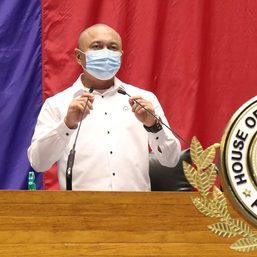
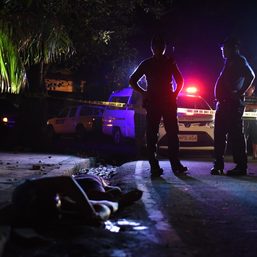

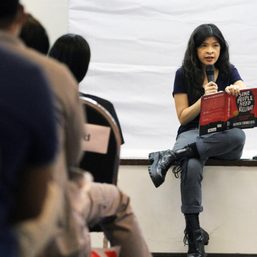



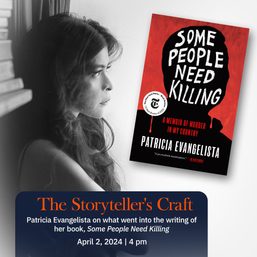
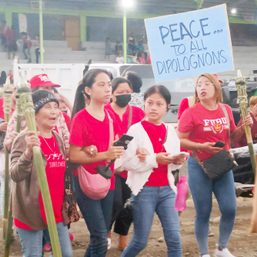
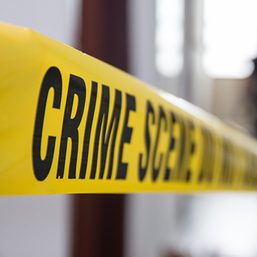
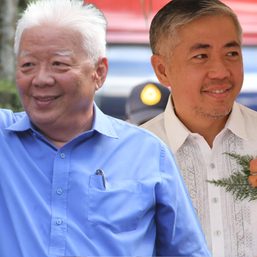
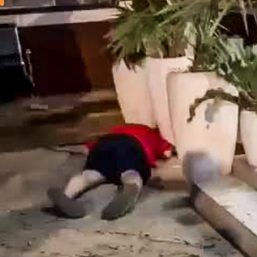
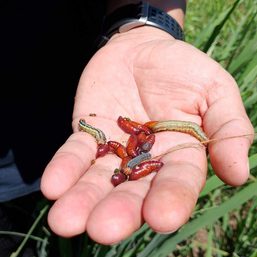
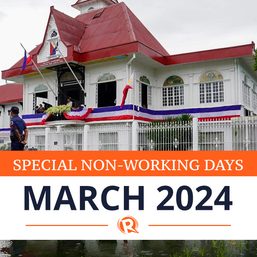
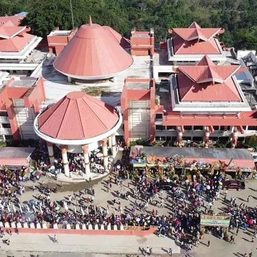
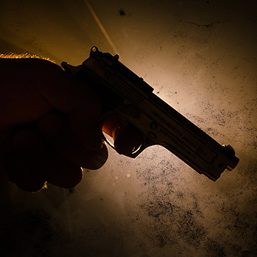

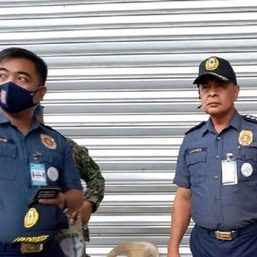
There are no comments yet. Add your comment to start the conversation.